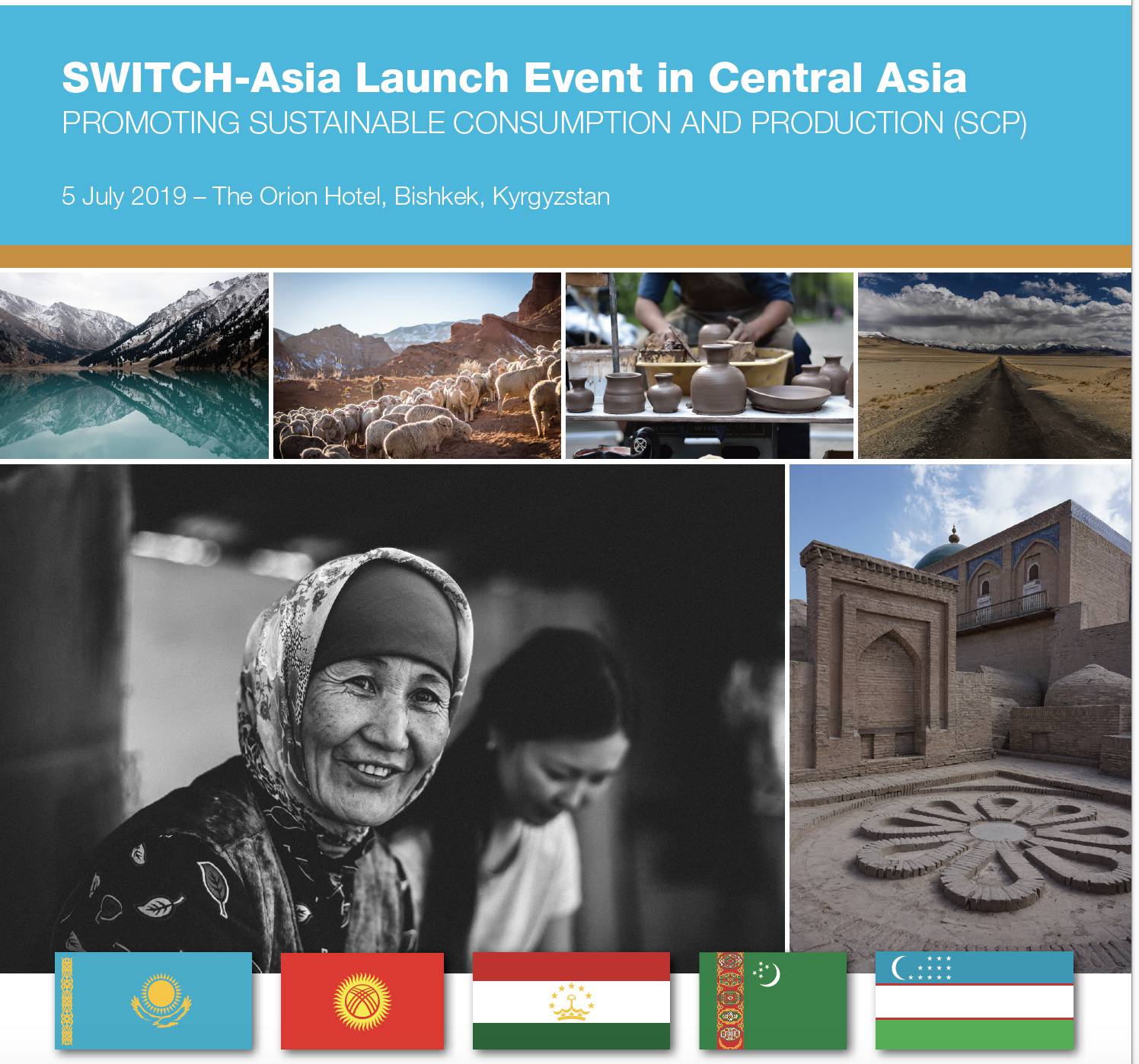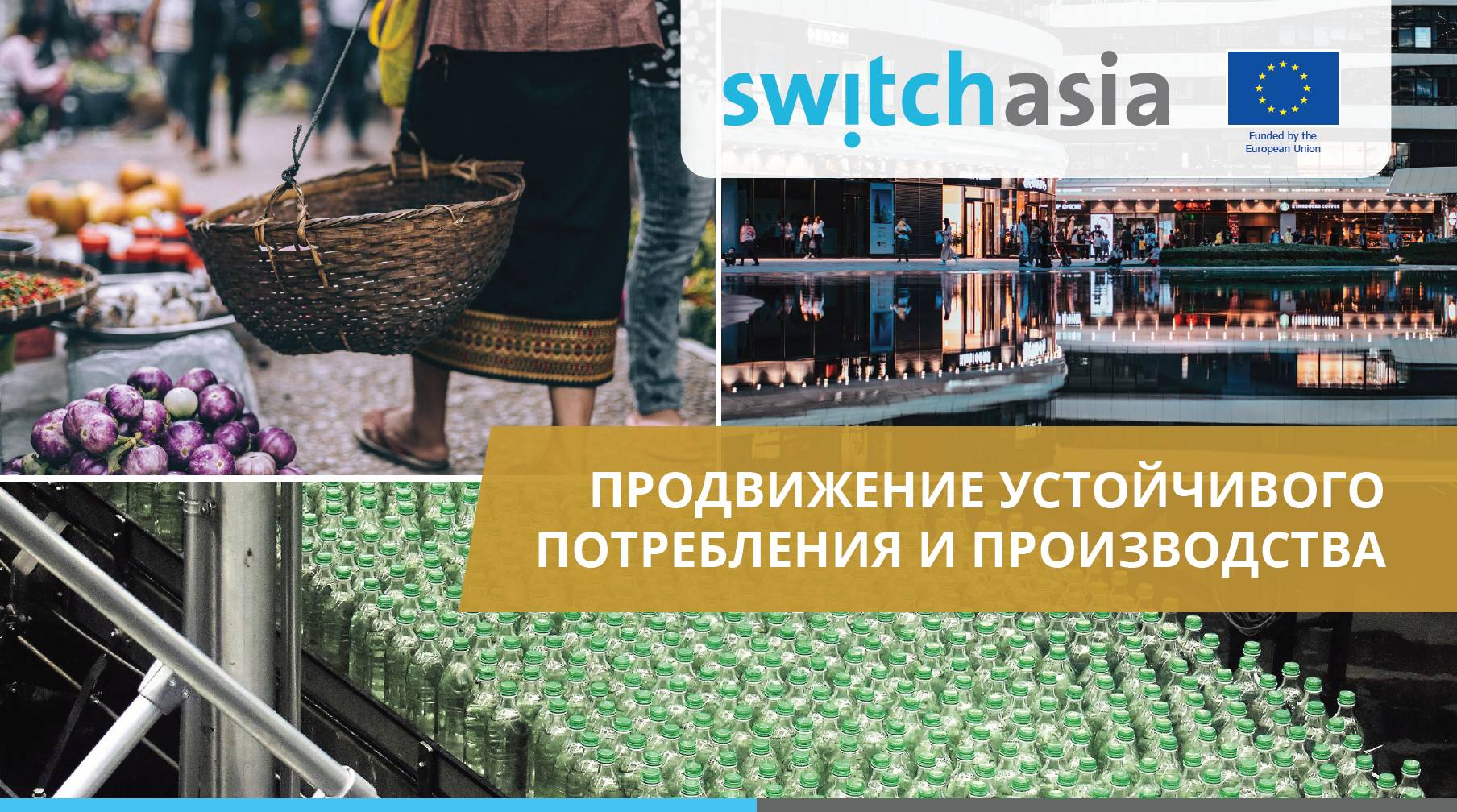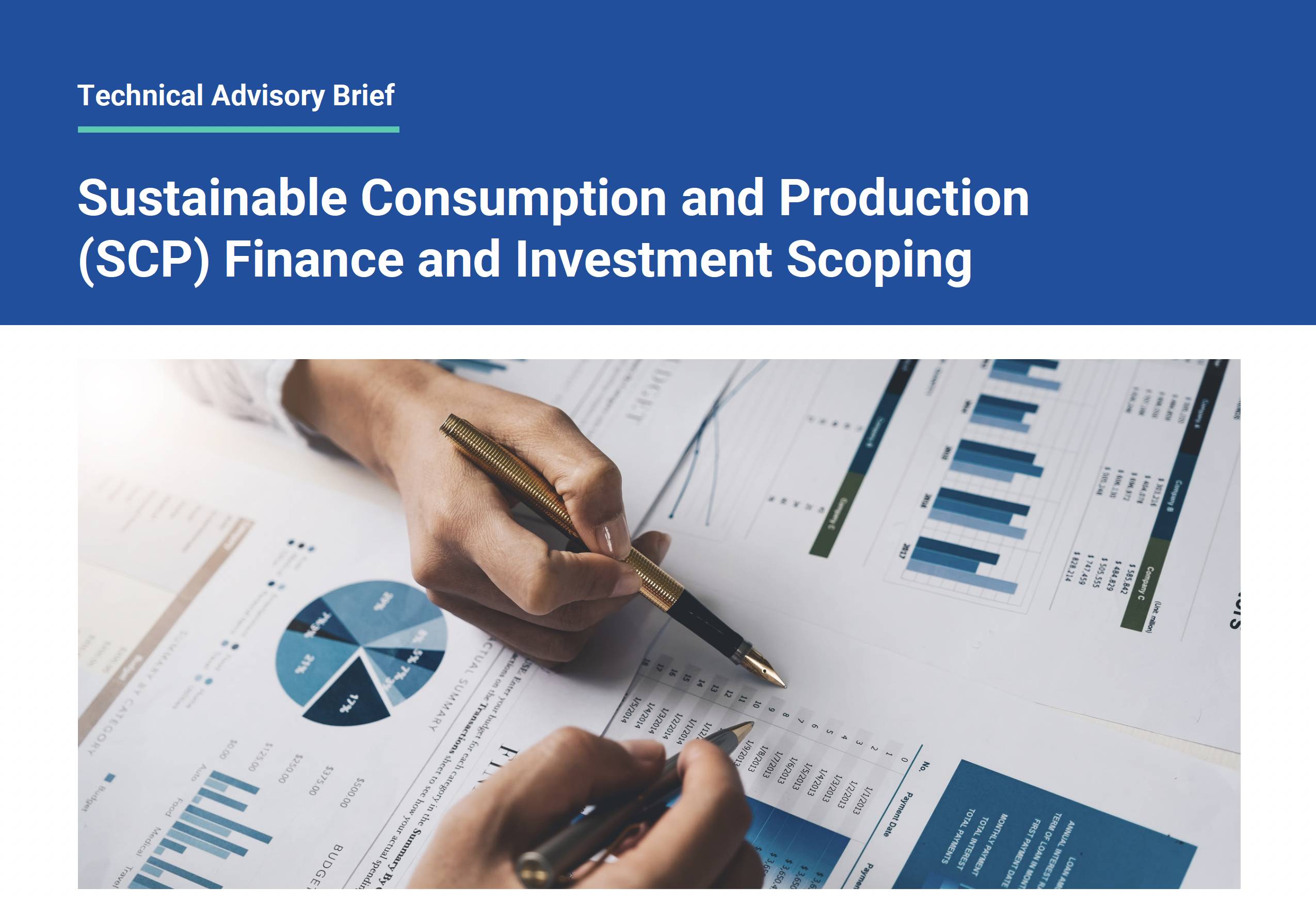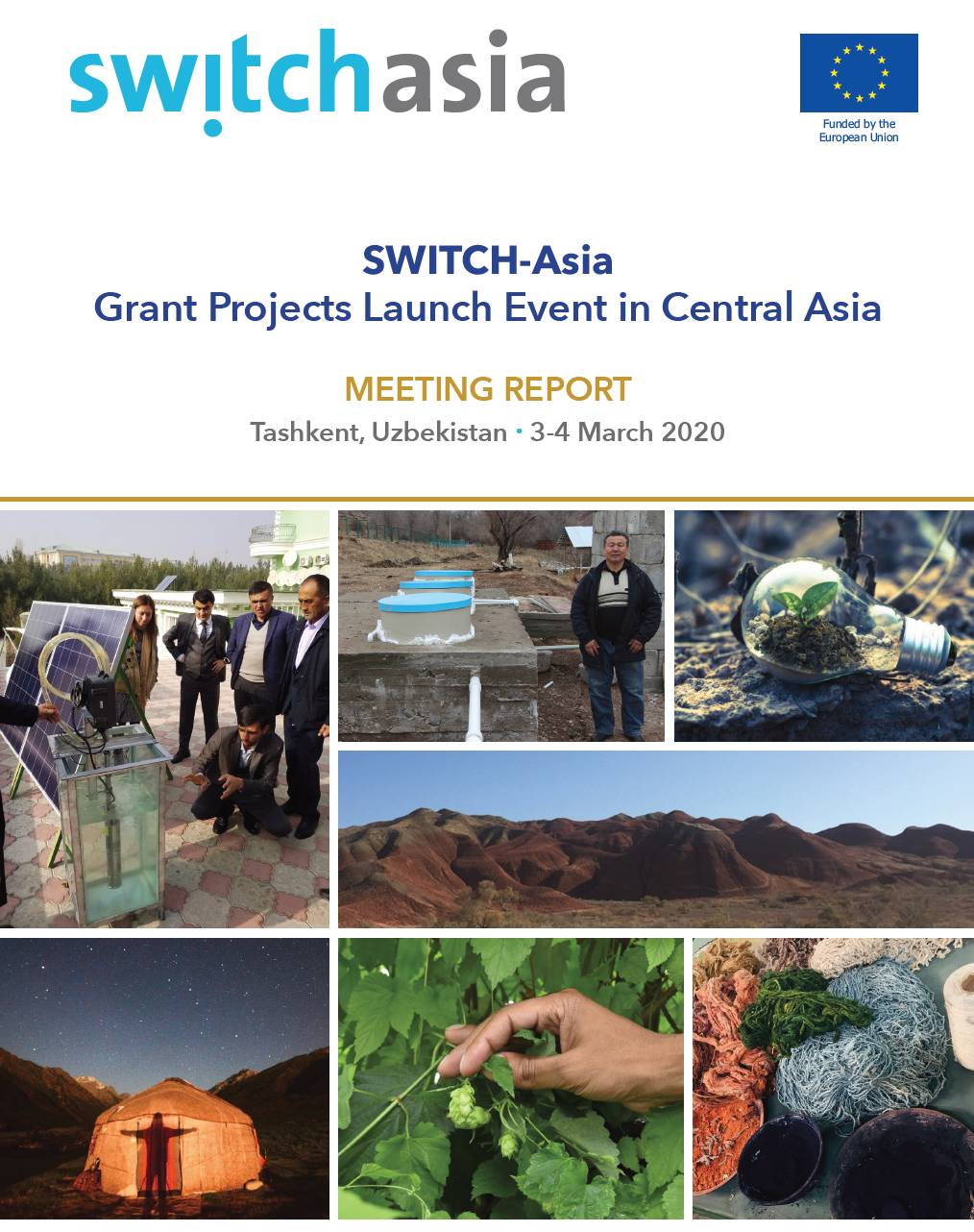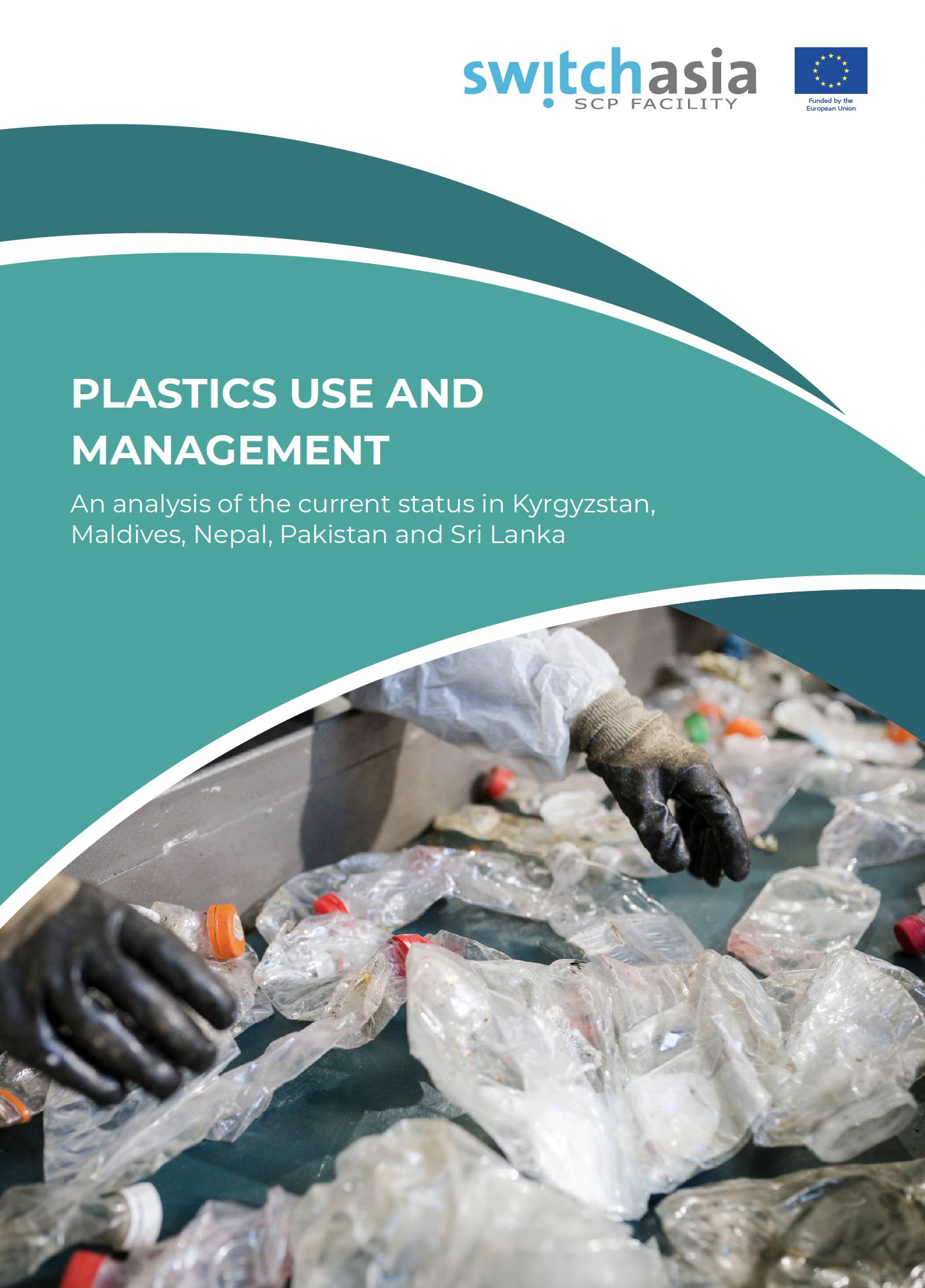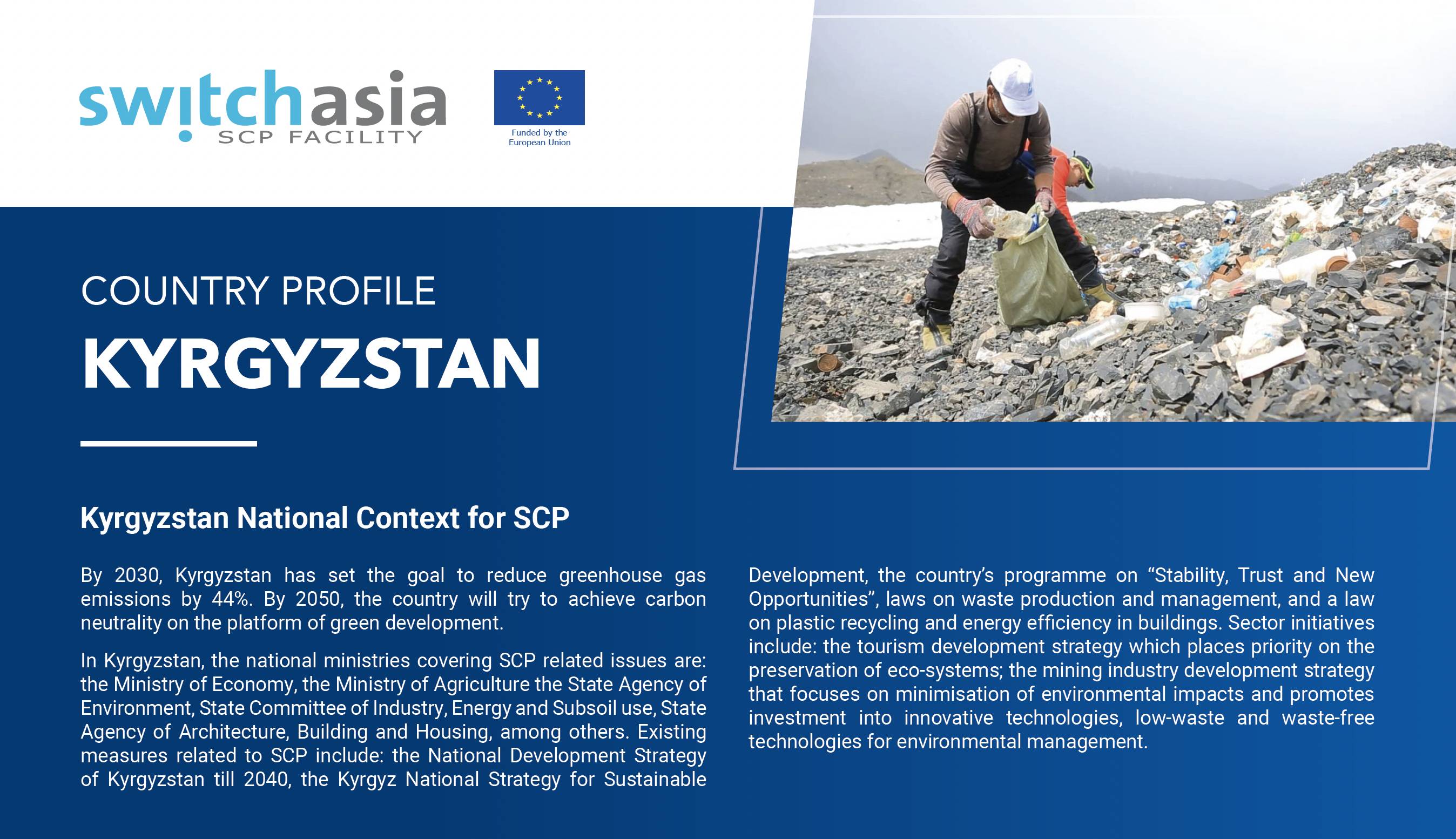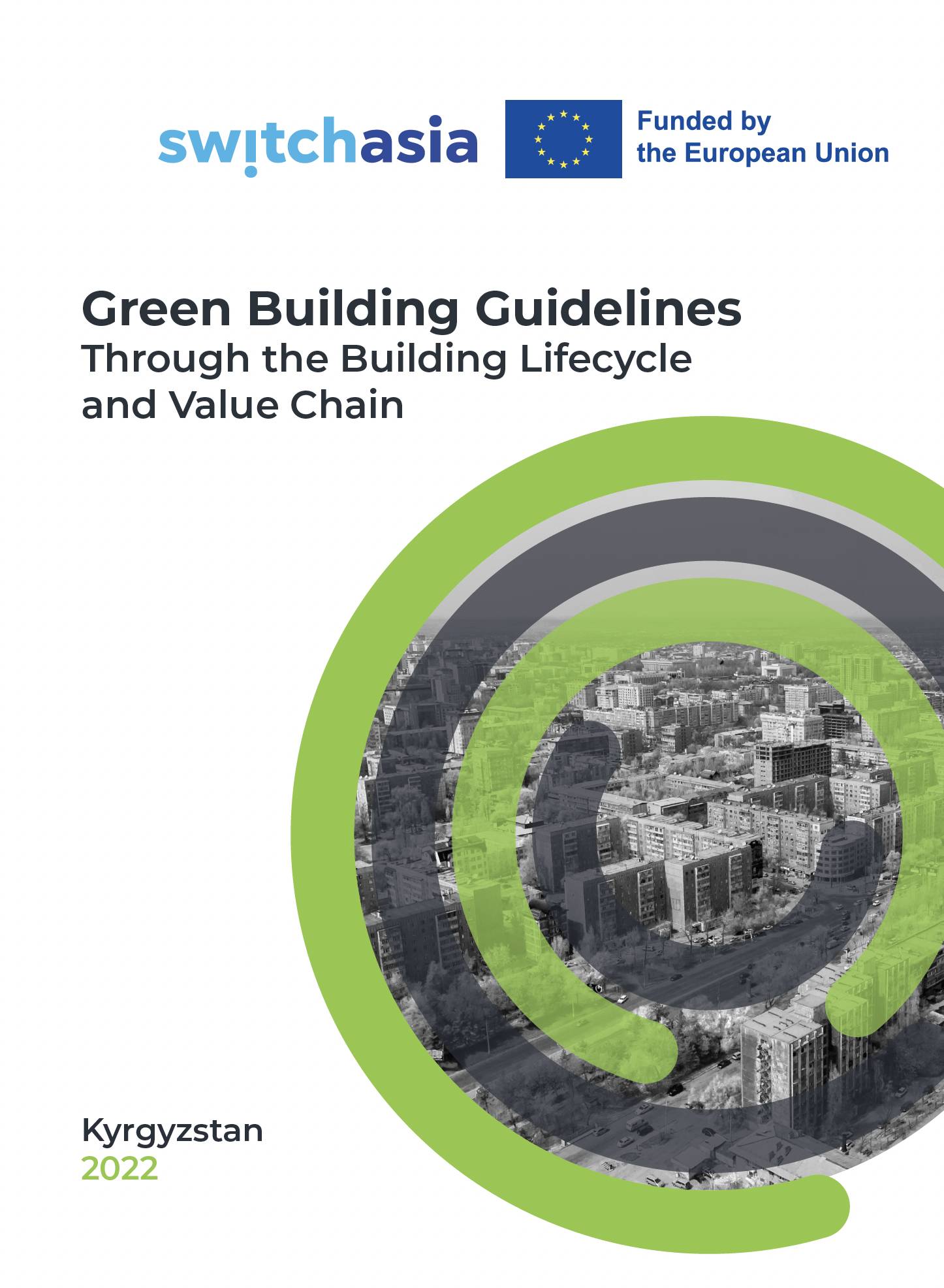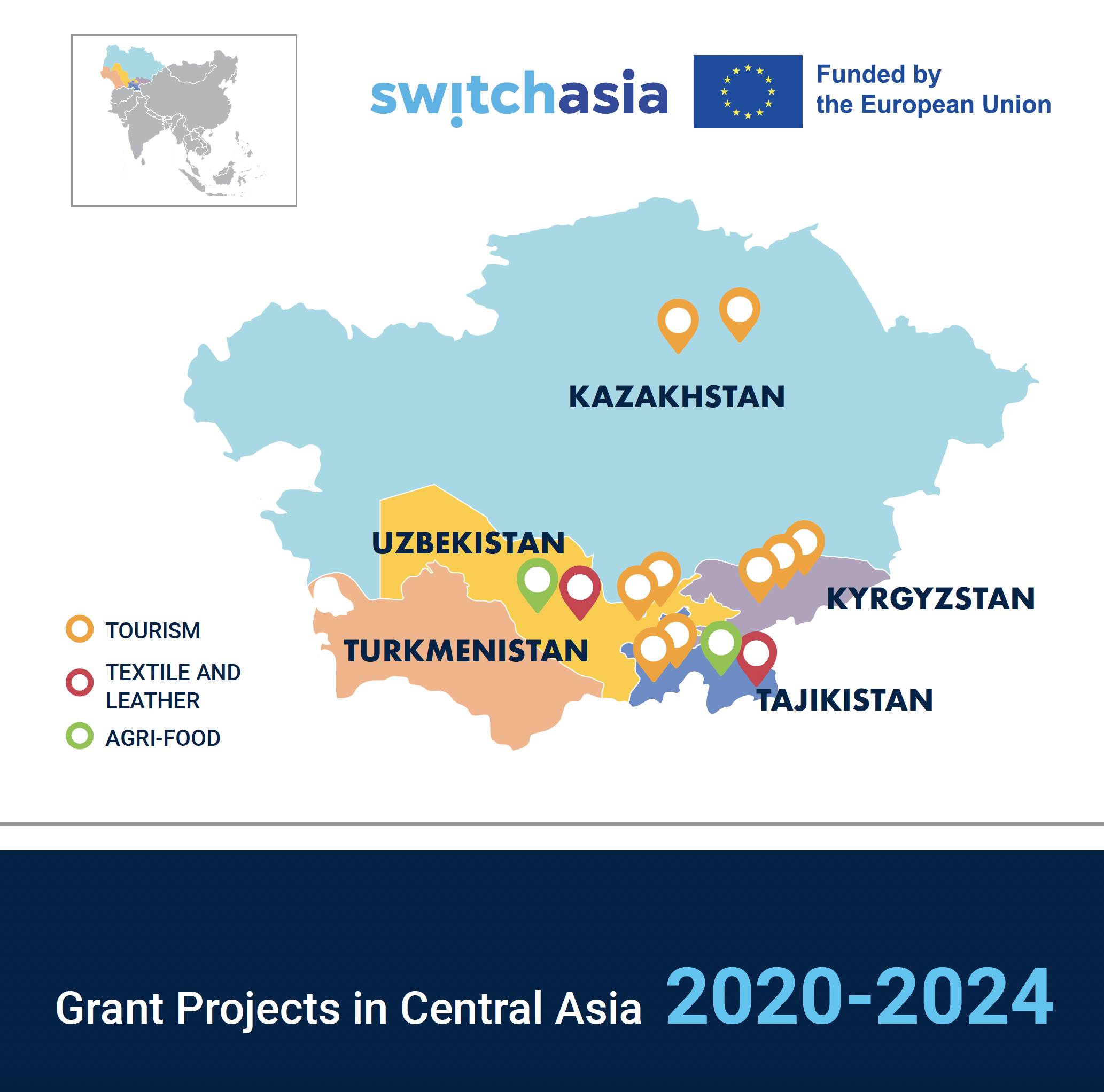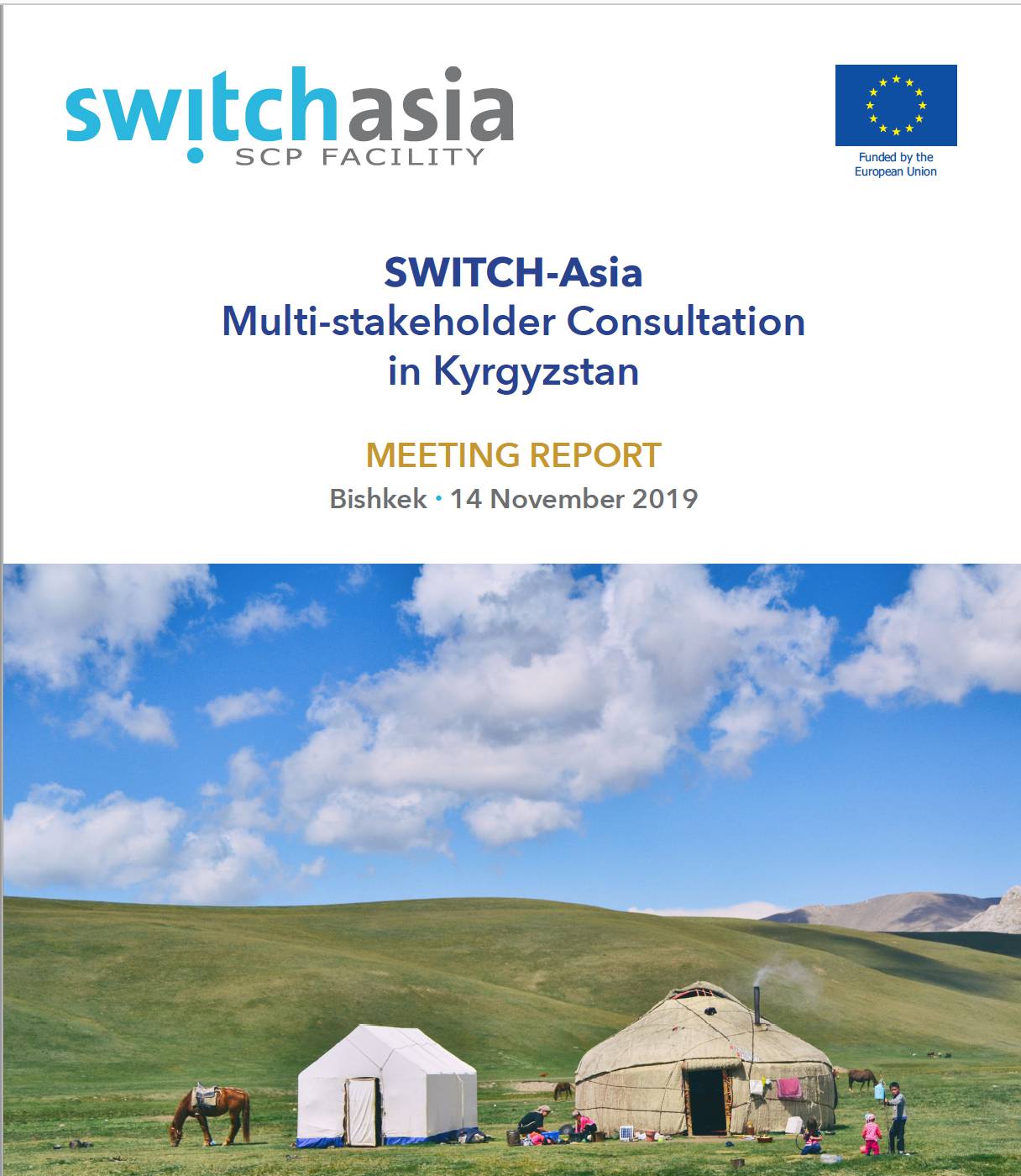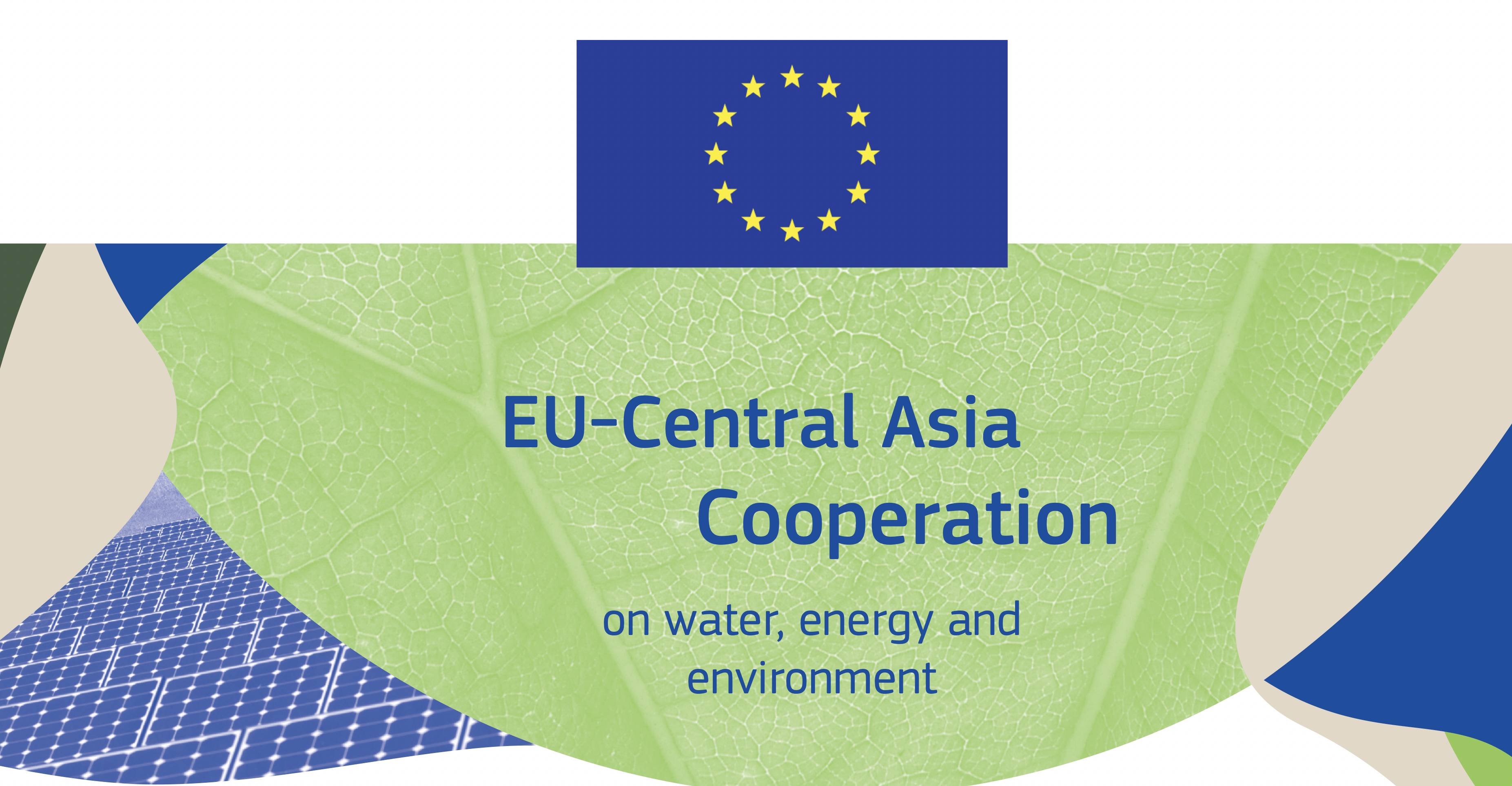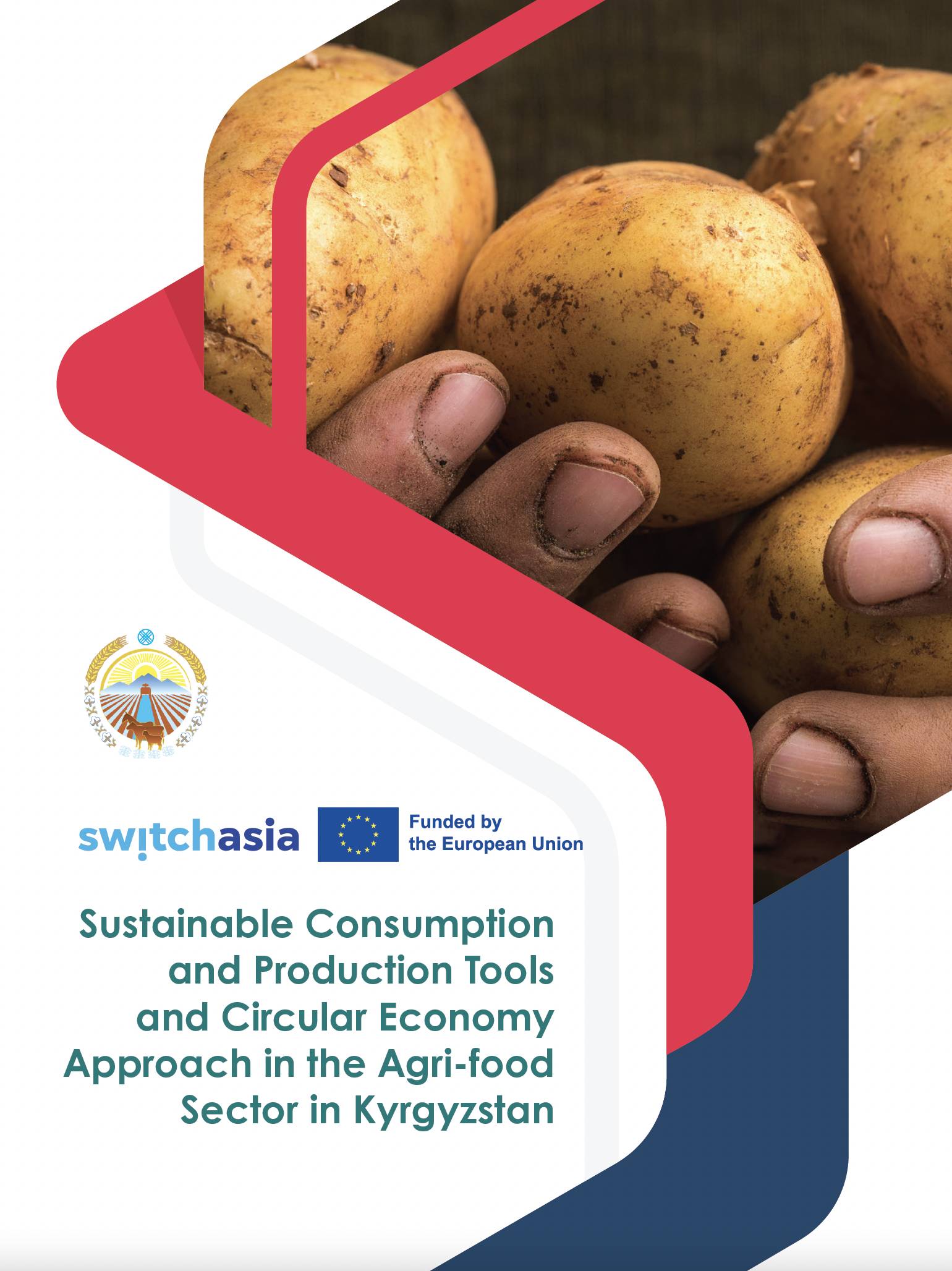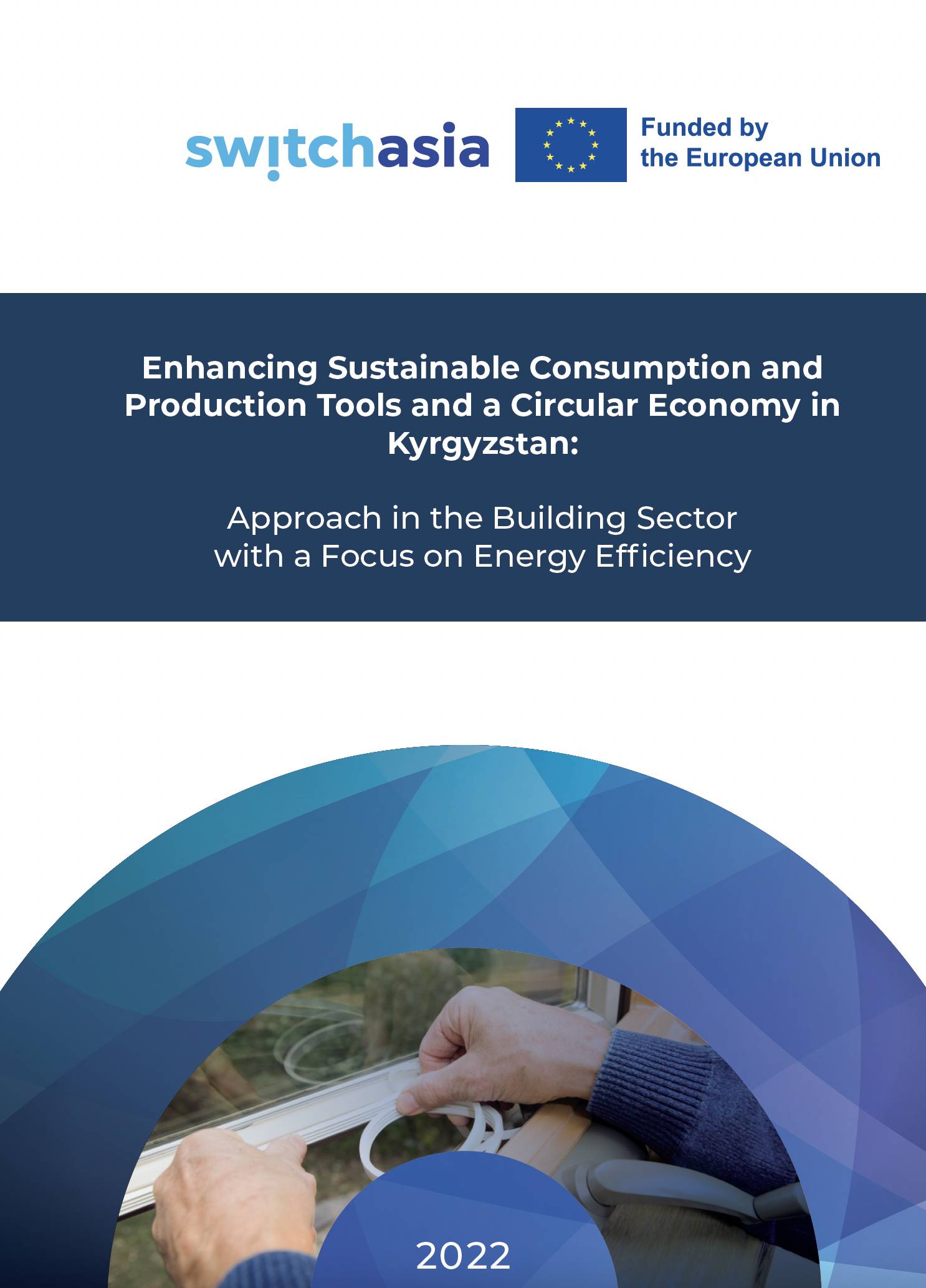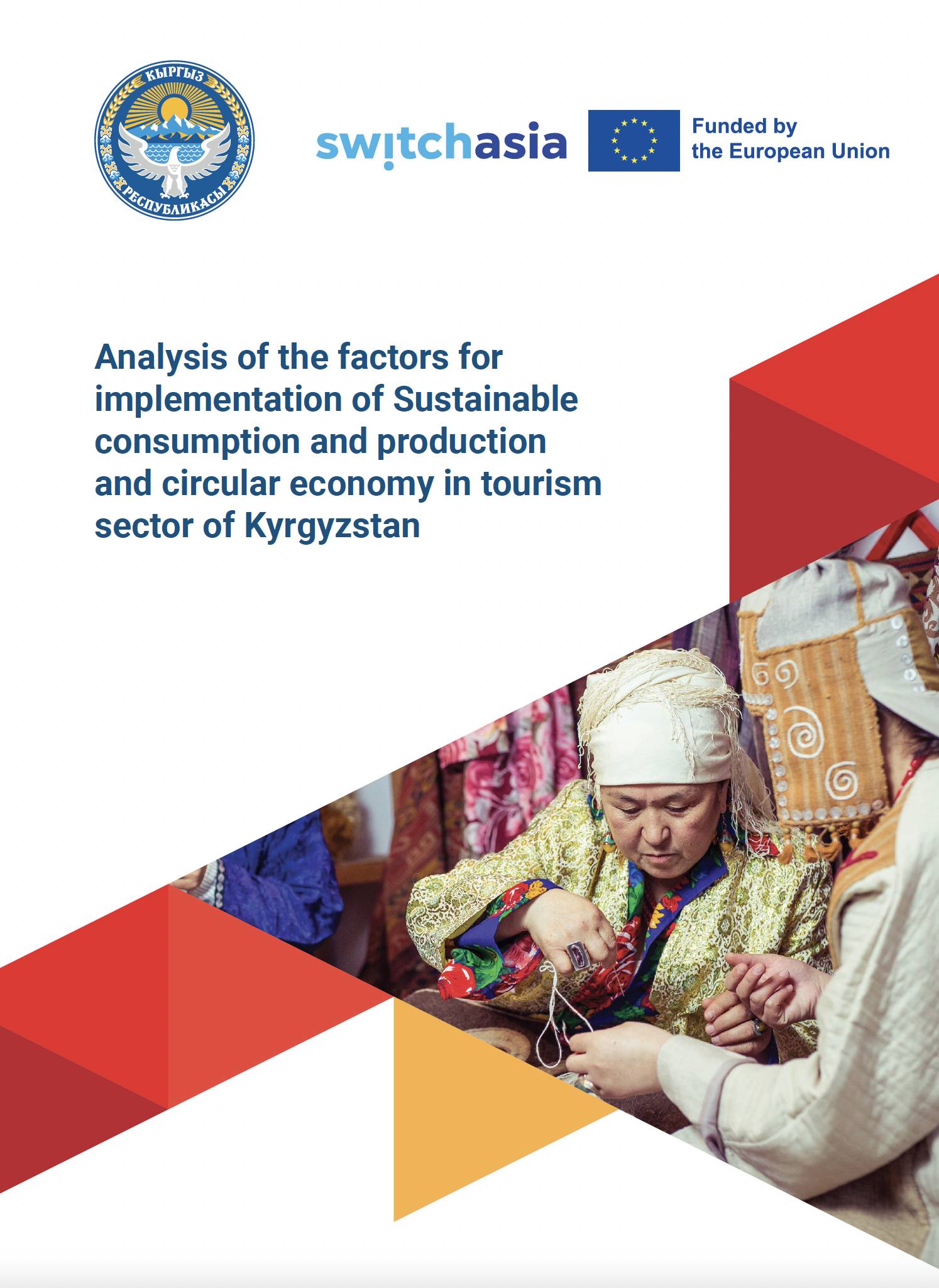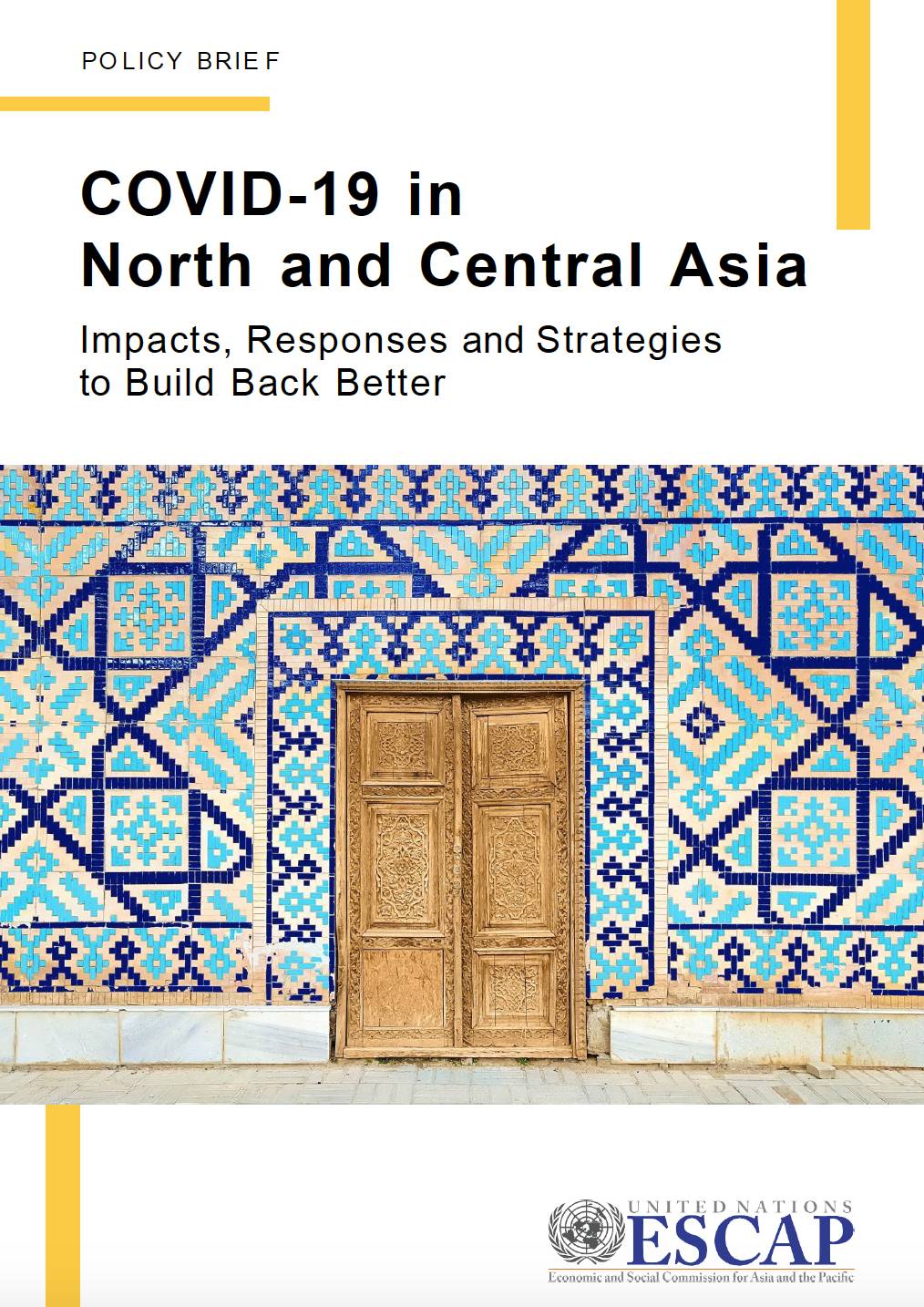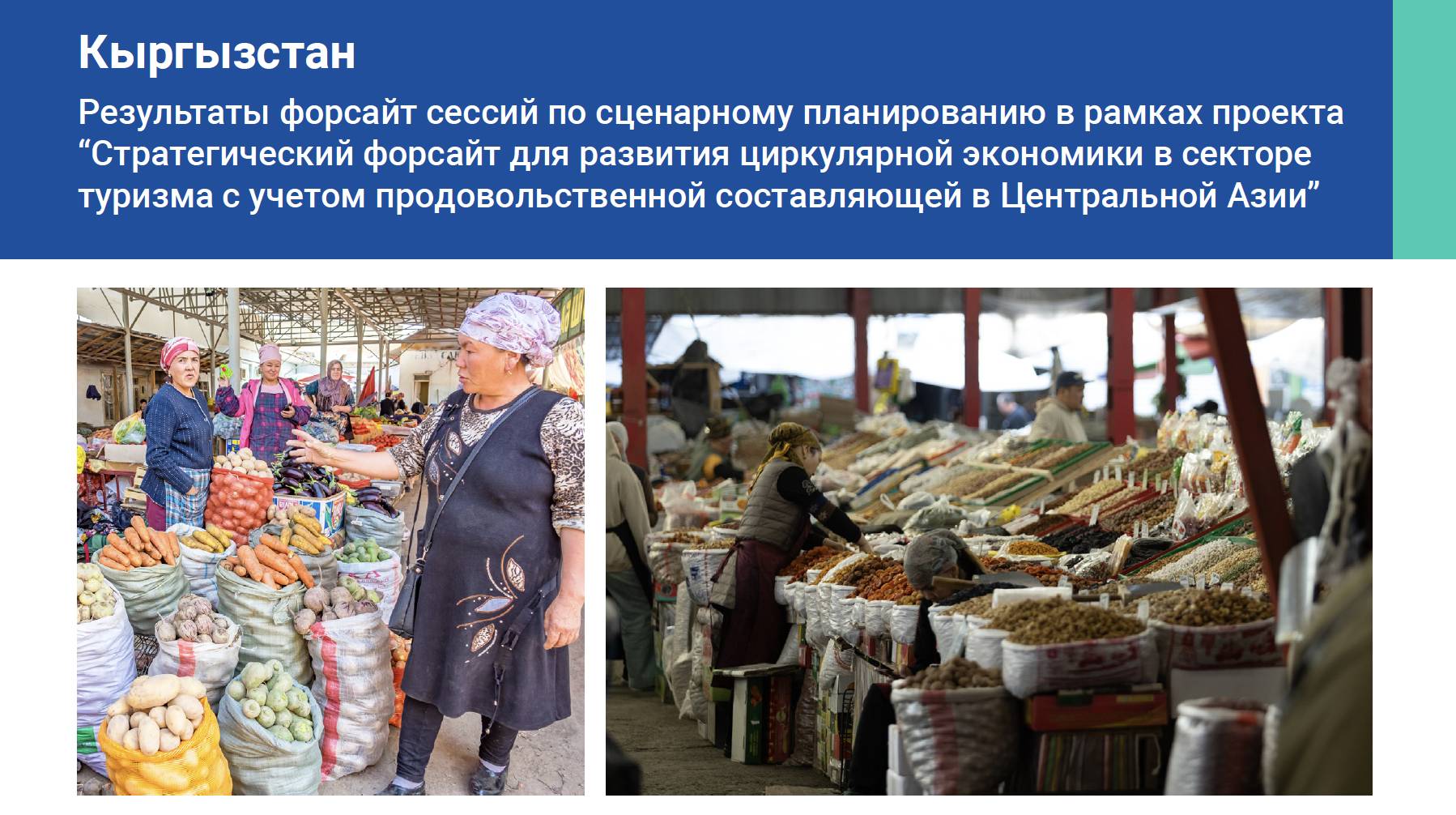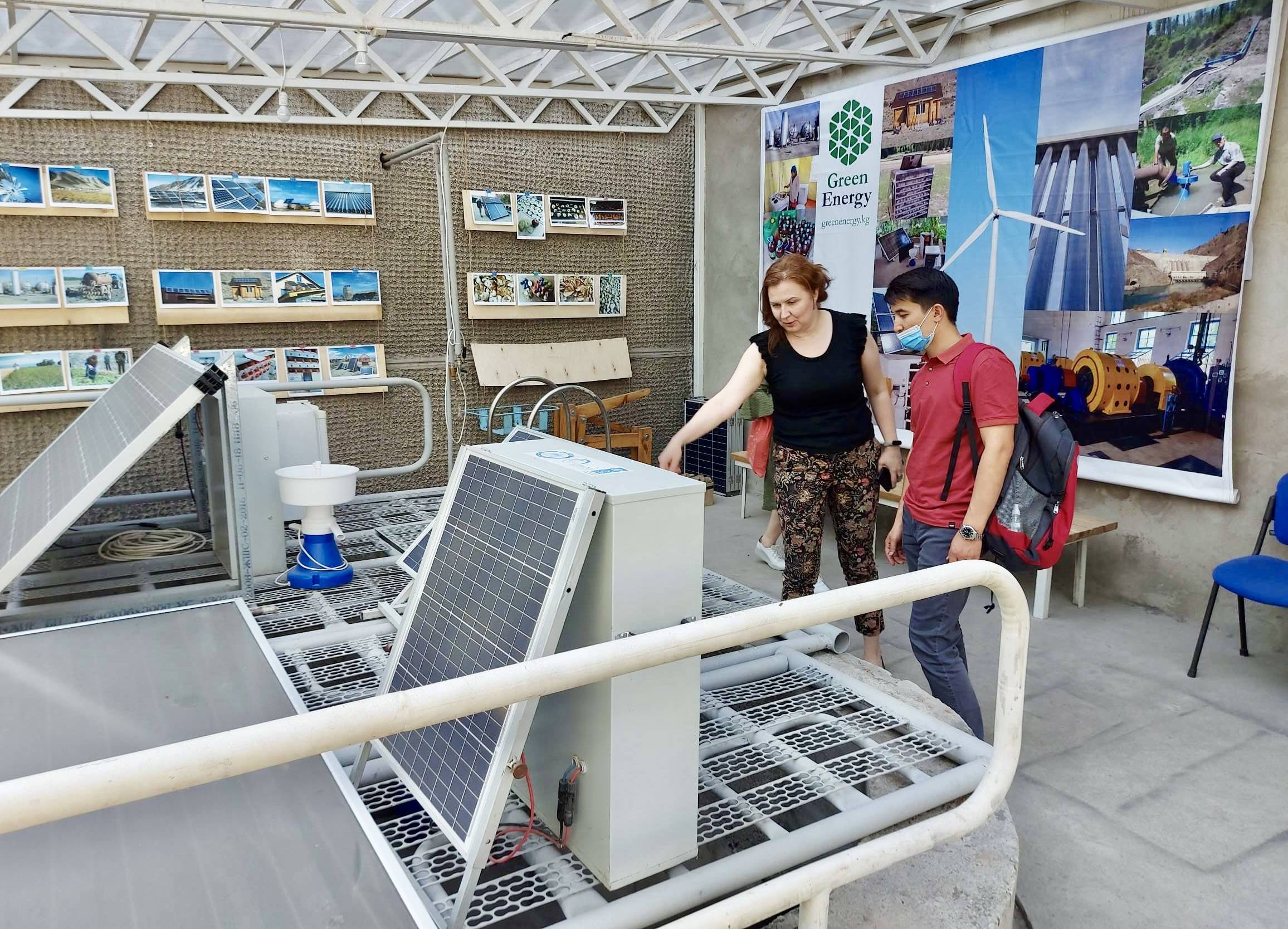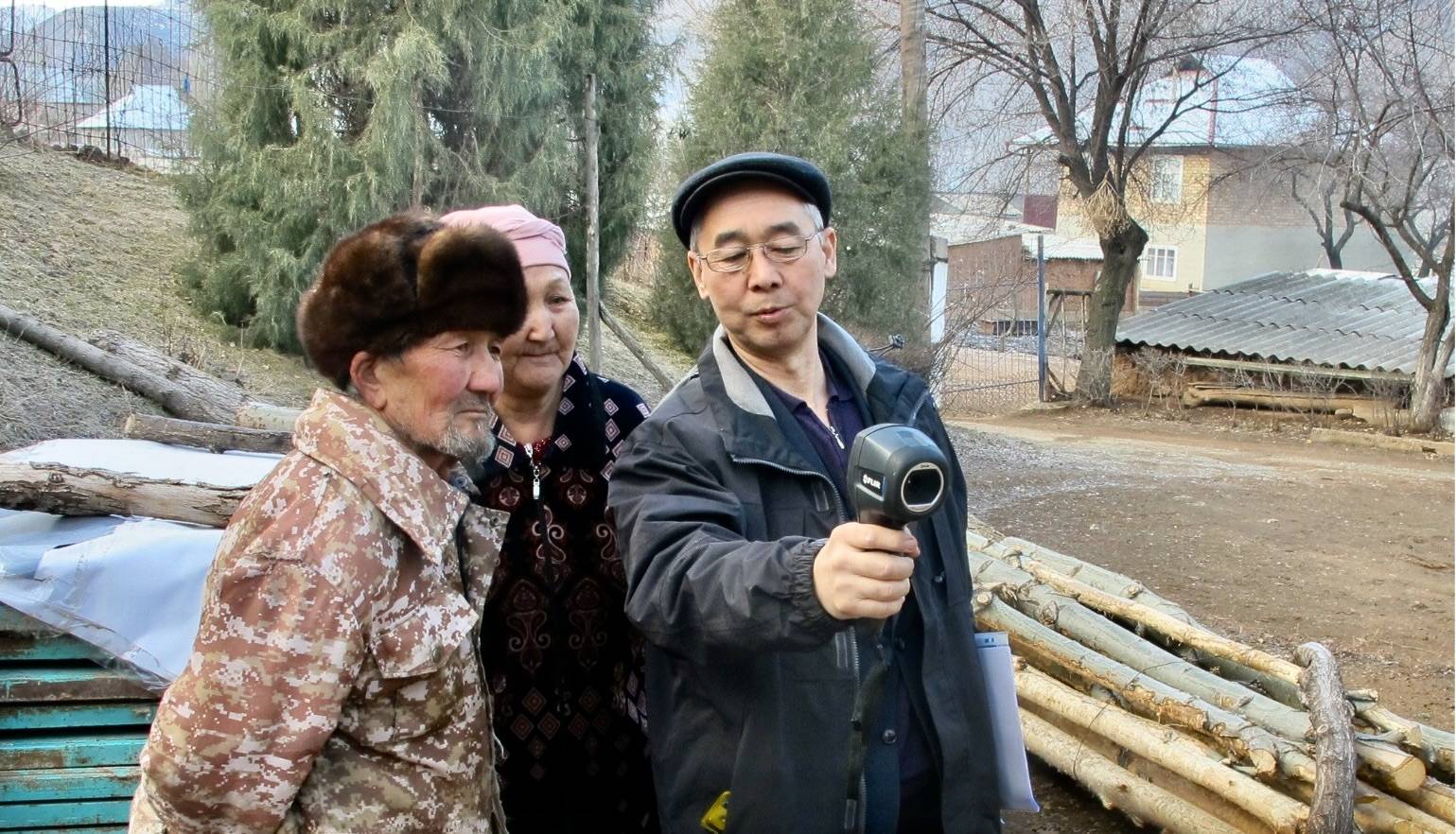
SCP Context
Overview of SCP in Central Asia
Countries in Central Asia are at different stages in terms of awareness raising and policies directed towards shifting to SCP. Most of SCP related activities have been conducted and implemented by UN Environment (UNEP) and the Secretariat of 10 Year Framework of Programs on SCP (10 YFP). The first regional meeting on SCP for Central Asian countries was organised by UNEP and the Secretariat of 10YFP in Almaty, Kazakhstan, in November 2015. During the Workshop, challenges and opportunities were discussed together with priority areas for the implementation of SCP policies and tools. Among the regional priorities, sustainable building and construction, sustainable public procurement and sustainable food systems were highlighted. Main regional challenges traced the link between poor management of water and energy resources and the significant impact this has on food supply and security, ecosystem services and biodiversity conservation. A second meeting for Central Asia and East European countries was held in Romania in 2016. Moreover, the Secretariat of 10YFP started a regional project on Sustainable Public Procurement for three Central Asia countries – Kazakhstan, Uzbekistan, Kyrgyzstan. Regional structures such as the Inter-state Commission on Sustainable Development (ICSD) and the Central Asia Regional Environmental Center (CAREC) play important roles in promoting SCP at regional and national levels, as well as providing the framework for capacity building to deliver needed changes. Among other organisations, the EU, UNDP, UNEP, UNIDO, UN ESCAP, ADB and the World Bank support activities related to SCP. In this context, the extension of the SWITCH-Asia programme to Central Asia will build on and scale up relevant actions through synergies and partnerships. EU SWITCH-Asia Launch Event in Central Asia was held on 5-th of July 2019 in Bishkek. This event was co-organised by the SWITCH-Asia SCP Facility, the European Commission, Directorate-General for International Cooperation and Development (DG DEVCO) and concerned European Union Delegations.
Kyrgyzstan National Context for SCP
By 2030, Kyrgyzstan has set the goal to reduce greenhouse gas emissions by 44%. By 2050, the country will try to achieve carbon neutrality on the platform of green development.
In Kyrgyzstan, the national ministries covering SCP related issues are: the Ministry of Economy, the Ministry of Agriculture the State Agency of Environment, State Committee of Industry, Energy and Subsoil use, State Agency of Architecture, Building and Housing, among others. Existing measures related to SCP include: the National Development Strategy of Kyrgyzstan till 2040, the Kyrgyz National Strategy for Sustainable Development, the country’s programme on “Stability, Trust and New Opportunities”, laws on waste production and management, and a law on plastic recycling and energy efficiency in buildings. Sector initiatives include: the tourism development strategy which places priority on the preservation of eco-systems; the mining industry development strategy that focuses on minimisation of environmental impacts and promotes investment into innovative technologies, low-waste and waste-free technologies for environmental management.
Current Challenges
Poor inter-ministerial coordination and a lack of awareness on SCP with no specific national framework in support of SCP promotion; little attention to alternative energies, with limited investments and financial resources allocated to support innovation and low carbon programmes; lack of incentives to integrate SCP models into business planning and operations; lack of SCP experts and consultants.
National SCP Priorities
Development of economic incentives (e.g. differentiation of taxes, subsidies); promotion of Sustainable Public Procurement (SPP), promotion of Extended Producer Responsibility (EPR),sustainable infrastructure, sustainable business models, production practices, and “greening” supply chains. In accordance with the National Development Program of the Kyrgyz Republic until 2026 (to the Decree of the President of the Kyrgyz Republic dated October 12, 2021 No. 435) the strategic priority for the development of agriculture should be to maintain environmental friendliness and focus on organic production.
Recent Developments
- The Green Economy Policy (2019-2023) was recently launched with a related action plan for implementation. This programme is structured around green energy, green agriculture and green industry.
- A law on management of secondary materials entered into force.
- A separate law on plastics is under development.
- Progress was achieved on the implementation of Sustainable Public Procurement (SPP). The goal is to increase proportion of SPP to 30% in 2023, and 50% in 2040. Currently, 20% of state procurement is provided by using the sustainability criteria.
- The Sustainable Development Strategy in Industry for 2019-2023 was developed with the support of UNIDO.The Green Economy Coordinating Committee and Working group were established. UN Page is the Secretariat of the Green economy Working group.
- An institute on “Digital Agriculture” will be created within the Ministry of Agriculture.
- On May 18, 2019, the “Law on Organic Agricultural Production” was adopted.
- The Cabinet of Ministers of the Kyrgyz Republic has developed the second edition of the “Law on Organic Production" (currently under consideration).
- National Organic and Environmental standards have been adopted in the Kyrgyz Republic.
Preliminary Needs Assessment
Need to strengthen sectoral focus such as safety of building material, efficiency in the construction sector, life cycle approach in the agri-food sector, including soil quality, production and consumption processes, waste re-use and minimisation. Awareness raising and access to appropriate knowledge need to be increased for implementing a green economy approach among all stakeholders.


